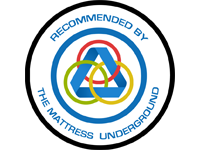The Benefits of Napping When Done Wisely
on Feb 05, 2018
Many people feel overworked, stressed out and cannot find time to nap in their days. At the same time, those who do nap often experience grogginess afterward that makes the next minutes or hours unproductive, which in turn can cause reluctance to try more in the future.
That being said, there are statistics that prove some naps are quite helpful - specifically, if you control the duration, the timing, and the location, you can ensure that your naps are the most helpful and rejuvenating sleep you get.
Duration: One pitfall is falling asleep for as long as you "feel like" sleeping. If you sleep for 40 to 70 minutes, it is possible that you will awake from deep sleep a bit disoriented, since your body expects longer sleep at that time. Rapid Eye Movement, or REM sleep, operates on a 90 minute cycle, so a nap of exactly 90 minutes can be quite beneficial, but anything substantially less or more means you awake out of a deeper sleep, and may feel less well rested.
While well-timed and long naps can be essential if you are trying to catch up on sleep, the Mayo Clinic recommends naps of 10-30 minutes. They may seem short, but they pack a powerful boost in energy, as opposed to grogginess, for the rest of the day. At the same time, this short of a nap never sends you into deep sleep at all, so you are woken in a gentler way.
Time of Day: In Spain, the siesta, or mid-afternoon nap, tends to fall right after a late lunch, during the hottest time of the day. Though not everyone in modern Spain still sleeps at that time, 2pm-3pm is supported by the research as one of the best times to take a nap.
Certainly, a big meal has the effect of creating a drowsy feeling, which means a nap right then may also aid digestion and help you snooze away your most unproductive hour of the day. At the same time, such a nap is early enough to avoid feeling wired and awake when you need to sleep in the evening. While people find other times that work for them to take naps, make sure you really pay attention if you try other times of day for naps, so that you know if they create side effects, like a poor night's sleep the following night.
Location: All napping spots are not created equal. Being in loud or bright areas will make it harder to fall asleep, as will feeling unusually cold or hot. Ideally, you'll be able to actually lie down, since it is much more difficult to fall asleep upright, according to the Guardian. Lastly, one way to make sure you get that quick nap in is to drink something caffeinated right before lying down: it turns out that caffeine takes 20-30 minutes to take effect, which makes it possible to naturally rouse yourself after a short snooze.
Benefits of Napping
The benefits of naps are numerous: the main one is general alertness once you get out of the post-nap stupor, and improved mood. Your motor skills deteriorate if you haven't slept enough, so napping makes those stronger too, and you will find yourself better able to concentrate on tasks that just glaze you over when you are sleep-deprived.
Long-term, a habit of napping is associated with reduced risks of high blood pressure, stroke, diabetes, and excessive weight gain. The act of completely turning off one's brain for a few minutes is enough to take down the stress level in many situations, with studies showing lower stress levels in patients who nap compared to patients that don't, according to Medical Daily.
Need an all-natural place to lay your head for a glorious, well-timed nap? Contact us at My Green Mattress for an all-natural product you can trust.
← Older Post Newer Post →







Comments